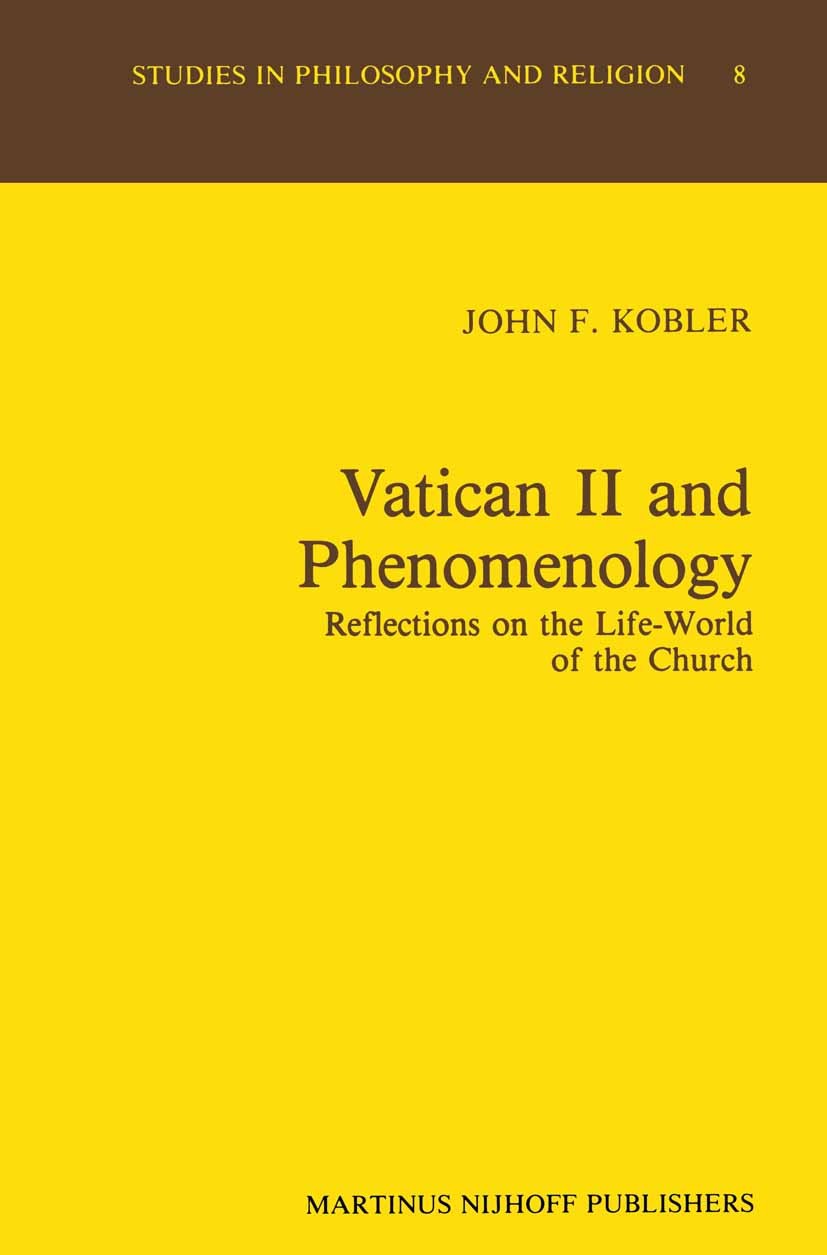| 書目名稱 | Vatican II and Phenomenology | | 副標題 | Reflections on the L | | 編輯 | John F. Kobler | | 視頻video | http://file.papertrans.cn/981/980815/980815.mp4 | | 叢書名稱 | Studies in Philosophy and Religion | | 圖書封面 |  | | 描述 | The thesis of this essay may be stated quite briefly: Vatican II is a demonstration- model of the phenomenological method employed on an international scale. It exemplifies the final developmental stage, postulated by Husserl, of an inter- subjective phenomenology which would take its point of departure, not from individual subjectivity, but from transcendental intersubjectivity. Vatican II, accordingly, offers a unique application of a universal transcendental philosophy in the field of religious reflection for the practical purposes of moral and socio- cultural renewal. Phenomenology, as a distinctively European development, is relatively un- known in America - at least in its pure form. Our contact with this style of 1 intuitive reflection is usually filtered through psychology or sociology. How- ever, Edmund Husserl, The Father of Phenomenology, was originally trained in mathematics, and he entered the field of philosophy because he recognized 2 that the theoretical foundations of modern science were disintegrating. He foresaw that, unless this situation were rectified, modern men would eventually slip into an attitude of absolute scepticism, relativism, and pragmatism. After t | | 出版日期 | Book 1985 | | 關鍵詞 | church; communication; consciousness; dynamics; hermeneutics; phenomenology | | 版次 | 1 | | doi | https://doi.org/10.1007/978-94-010-9936-3 | | isbn_softcover | 978-90-247-3194-7 | | isbn_ebook | 978-94-010-9936-3 | | copyright | Martinus Nijhoff Publishers, Dordrecht 1985 |
The information of publication is updating

|
|
 |Archiver|手機版|小黑屋|
派博傳思國際
( 京公網(wǎng)安備110108008328)
GMT+8, 2025-10-5 21:15
|Archiver|手機版|小黑屋|
派博傳思國際
( 京公網(wǎng)安備110108008328)
GMT+8, 2025-10-5 21:15


